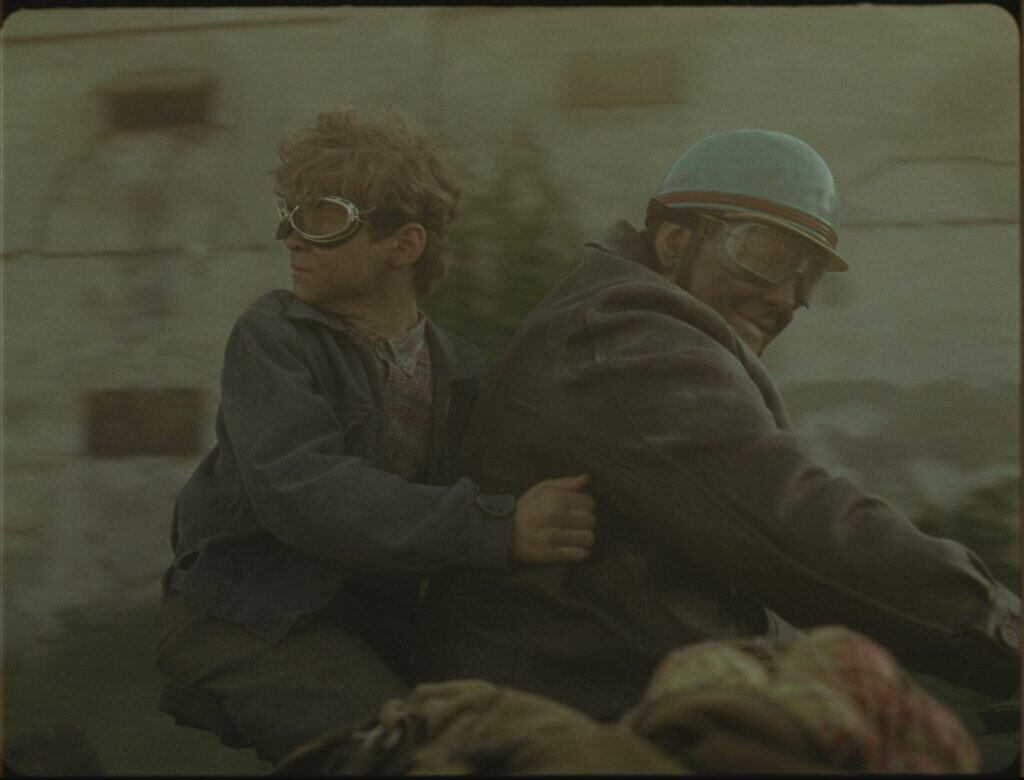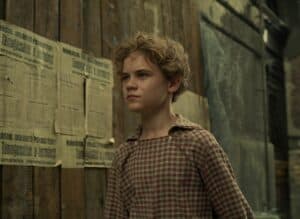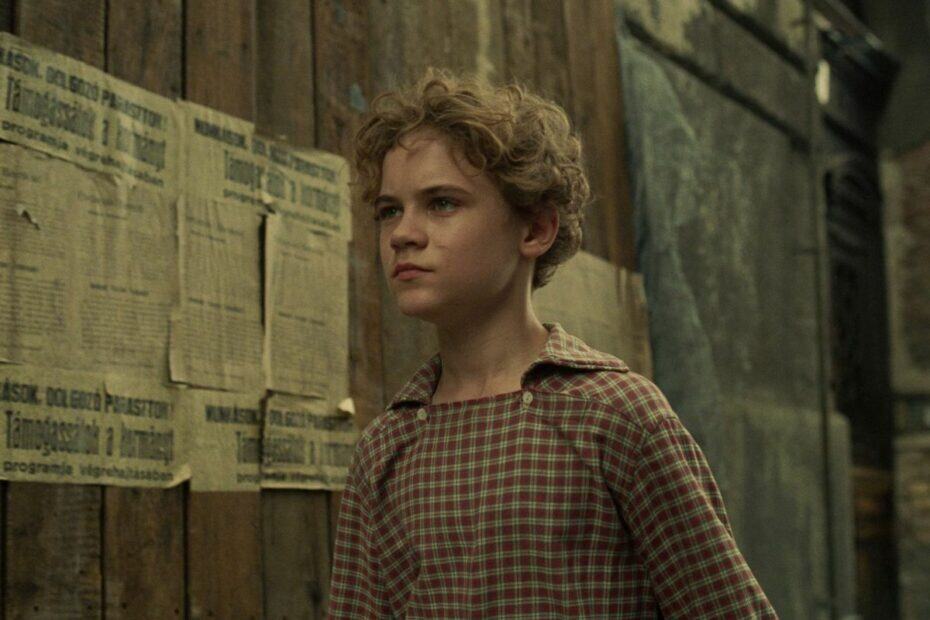Orphan (Árva) is László Nemes’s third film, following Son of Saul (Saul fia 2015) and Sunset (Napszállta 2018). The film was the first to be screened in the Venice Film Festival competition. As the director mentioned during my interview, it is a deeply personal project for him, based on his father’s life. The father in question is none other than András Jeles, the director of the Hungarian classic, A kis Valentinó (1979), among other good films. According to the credits, the film is written by the director and his usual partner, Clara Royer, “based on an original idea by András Jeles”.
Orphan begins with a brief prologue set in 1949, where Andor, aged four, is reunited with his Jewish mother Klara (Andrea Waskovics) after living in an orphanage until then. In the following sequence, the film jumps to 1957, one year after the failed revolution, where Andor (Bojtorján Barabas) is now twelve years old. The relationship with his mother is somewhat strained, if not altogether bad. As often as he can, he slips into the basement of his apartment building to pray for his father’s return from the camps. He frequently spends time with his best friend Sári (Elíz Szabó), whose older brother Tamás (Soma Sándor), a revolutionary, now hides in an abandoned building.

An Orphan with a mother and father
Once Klára introduces the butcher, Mihály Berend (Grégory Gadebois), a rugged man who helped her escape the Nazis, a family, of sorts, begins to take shape. Andor is initially visibly annoyed, but has to accept the situation, not least when he learns that Berend is his biological father. On the other hand, it soon becomes clear that he is a brutal man and that Klara has suffered considerably while being with him.1 It should be said that although Berend is played by a French actor, there is no The Brutalist thing going on with his voice, but he is simply dubbed by a Hungarian thespian. He tries to become popular with Andor, but they are not all too similar.
Andor’s relationship with Sári becomes more romantic, but it’s set against a gloomy background of the Soviets looking for revolutionaries like Tamás, and there is also the Jewish dimension. In a key scene, Andor joins Sàri’s family for Seder, where her grandfather shares a reminder. “The adults and the children fled to Egypt. But only the children entered the promised land.” However, in the film, the question is not how to reach a promised land, but rather to survive by any means necessary, no matter what kind of people you have to deal with. The issue of Jewish survival remains, sadly, as urgent as ever, but how does the director portray this?
From a cinematic point of view, there is nothing to complain about. Mátyás Erdély’s cinematography is among his best. From a cinephile’s point of view, I thought about Hungarian classics from the eighties set in roughly the same era, such as Time Stands Still (Megáll az idő,1982), but also more experimental lensing, like Sándor Kárdos’ work in Eldorádó (1988). The framing is exquisite throughout the film, and our vision is often limited by watching scenes through bars or other objects that frame what we can see. The colours are equally striking, not least the usage of red. Márton Agh’s production design is also stunning. I can’t imagine that any other competition film will be better shot than Orphan.
With all this in mind, we should have another masterpiece from the director of Son of Saul (2015) on our hands. Unfortunately, that is not how the film plays out. At the Disapproving headquarters, the script is rarely a point of discussion, but something is off with the writing here. A film doesn’t necessarily need to move forward to serve a plot, but some variety is necessary. All too often, Orphan feels repetitive, which makes its 132 minutes occasionally demanding to get through. This is a pity in a film with so many rare qualities. There is a lot to recommend here, but the nagging feeling is that it could have been so much stronger.
In any case, the positives outweigh the negatives, although one could argue for a slightly tighter script.
Orphan

Director: László Nemes
Date Created: 2025-08-30 20:04
3.5
Pros
- Cinematography
- Production design
Cons
- Slightly repetitive script

